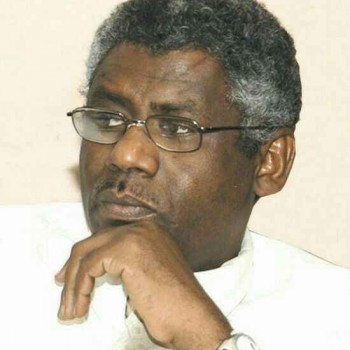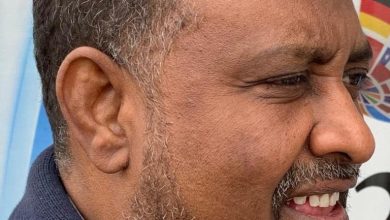Opinion
Why Did We Rejoice and Cry?

As I see
By Adil Al-Baz
1
Was it because the two great armies of Karari and Bahri merged, or because, the day before, our army crossed the bridges into Khartoum, or because Al-Fashir stood firm and now the joint forces advance towards Malit and Nyala?
No, none of this—though all these moments of joy and triumph played a part in making us happy and brought us to tears, causing our cheers to echo from refugee camps in Darfur to the streets of Faisal neighborhood in Cairo, chanting: “One army, one people.”
2
So why did tears pour from our eyes? For a year and a half, we woke up and went to bed with fear for our nation gnawing at our minds, as it was completely at the mercy of the winds. Every day we heard and saw the destruction caused by the scoundrels, what they looted and raped. Our hearts overflowed with sorrow, our eyes filled with tears, feeling helpless as our once safe, beautiful, and tolerant homeland was suddenly reduced to ruins. Its people were turned into refugees overnight. But all of that was bearable; all we hoped for was the return of our homeland, in any condition, so we could return to its embrace. However, a time came when we feared we might lose it forever.
3
Our fears were reinforced daily by news of siege and collapse. Most of our cities were threatened, with roads and army camps surrounded by thousands of well-armed scoundrels. At night, fear gripped us, and we rushed to our devices: Did the armored units fall? How are the engineers holding up under the siege? Did they withstand or crumble? How’s Al-Obeid, and what have its brave camel riders done? We woke up early to ask friends if Babnusa still stood firm. How can a city survive for six months without water, food, or weapons? One day they told us that Major General Yasser had dug his own grave, and a few days later, he was buried in it. It seemed to me as if he had dug mass graves for all of us, burying us alive just as the scoundrels buried hundreds of our Masalit people alive in a pit they themselves dug!
4
When the Tatar-like armies of the scoundrels invaded our green island and did what they did to its people, even reaching the flower of cities—Medani—despair took hold of us, and doubts gnawed at us about the possibility of ever regaining our homeland. Would we be condemned to eternal wandering and exile from our beloved Sudan? These unbearable questions were devastating and unsettling, so we quickly fought them off as if they were the whisperings of Satan himself, seeking refuge in God. We constantly asked: When will God’s victory come? Our hearts found peace when we heard His response: “Indeed, the victory of God is near.”
5
Despair often wins battles. How? Just like what happened over the past three days. After despair overtook us, weak spirits chased the mirage of humiliating negotiations, and fear broke trembling hearts that had given up on the promise of God and the army leaders’ promise of victory. But when despair gripped hearts, the victory from God came, along with a swift breakthrough. Our forces crossed all the bridges on foot last Thursday—a dream that seemed impossible to achieve in mere hours. The confluence of the Nile swarmed with hundreds of boats carrying hundreds of fighters. These boats suddenly appeared on the surface of the White Nile as if they had emerged from its depths. Earlier, under the cover of darkness, hundreds of fighters and “security agents” had infiltrated to neutralize the snipers who had taken up positions in the skyscrapers of the area by the hundreds, allowing thousands of our young infantrymen to cross all the bridges on foot with a bravery reminiscent only of the Mahdi’s armies as they crossed the White Nile, raising their banners high above their boats as they crossed into the heart of the invader.
6
Now, our questions have changed. Instead of asking whether Al-Fashir had fallen or remained standing, we began asking whether the joint forces had reached the outskirts of Malit and Nyala. Has Sennar fallen, and how long until Medani, which is almost surrounded from all directions, is liberated? Instead of asking where the army had withdrawn, we now asked where the enemy had fled. Instead of asking about the siege of the army’s barracks, we now saw the army of Karari embracing the army of Kaddur. Instead of defense and patience, there is now a relentless attack on the enemy in their hideouts, with victory over them. From the news of siege and defeat, we’ve moved to the horizon of victory and daily advances on all fronts. Praise be to God, and God is great.
7
This massive shift from the clutches of despair to the arms of hope is what made us rejoice and cry, alongside our deep sense that the homeland had returned to us—and indeed, it is now closer to us than we ever imagined. This is what brought joy to our hearts and made our tears flow, what made us sing and celebrate…with the maestro of Sudanese music in the state of (1956): “How sweet are the hours of reunion, me and my beloved at the meeting place…we parted from misery, and our lives have become radiant…soon, God willing.”



